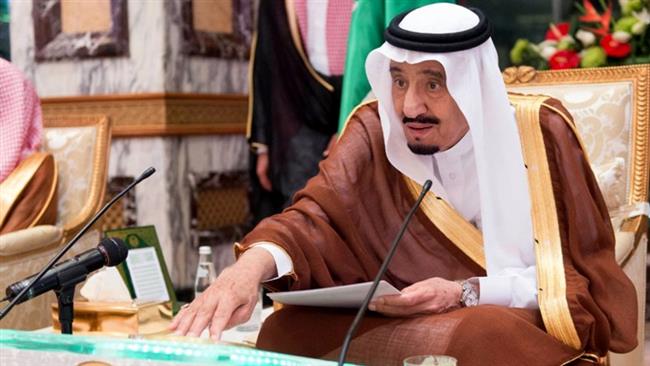Alwaght- Ailing Saudi Arabia's King Salman on Saturday announced a major cabinet reshuffle sacking veteran oil minister and the central bank governor in a bid to restore public confidence in the monarchy.
The Saudi ruler also named new ministers for water, transport, commerce, social affairs and health and pilgrimage portfolios and restructured some ministries in a shake-up focused on areas where the government has promised change.
The most outstanding change was the creation of a new Energy, Industry and Natural Resources Ministry under Khaled al-Falih. Falih was moved from the post of health minister to replace Ali al-Naimi, who has run the energy policy of the kingdom since 1995.
The oil industry has been struggling, with prices hitting 26 Euros per barrel in January. This led Saudi Arabia to suffer immensely and introduce austerity measures which have ignited simmering dissent in the kingdom. Saudi Arabia’s Treasury relies upon oil sales for over ninety percent of its revenue.
The Water and Electricity Ministry was broken up, with the water portfolio added to a new Environment, Water and Agriculture Ministry, and electricity added to the new energy ministry.
Major changes were also made to the Saudi regime’s economic leadership, with Majed al-Qasbi named head of the new Commerce and Investment Ministry, and Ahmed al-Kholifey made governor of the Saudi Arabian Monetary Agency (SAMA), the central bank.
Tawfiq al-Rabeeah, formerly commerce minister, was appointed health minister, Suleiman al-Hamdan was appointed transport minister, and the Pilgrimage Ministry was renamed the Haj and Umrah Ministry.
The royal decrees also merged the ministries of labor and of social affairs into a new department, and created a new Commission for Recreation and Culture.
Last April King Salman has fired the kingdom’s water and electricity minister amid intense fury over unpopular increases in the water and electricity tariffs.
The kingdom has reduced subsidies on water, electricity and fuel as part of the reforms adopted last December to cope with low oil prices and the subsequent budget deficit.
In December, the Saudi Finance Ministry said in a statement that the country would be running a budget deficit of $87 billion in 2016, which will be its third annual shortfall in a row.
Riyadh is also projecting spending next year at 840 billion riyals ($224 billion), the statement added.
In January this year, the International Monetary Fund has predicted tough economic conditions for Saudi amid low record of oil prices globally.
Saudi regime's finances have been depleted by continued subsidies, hand-outs to public sector workers and the regime's aggression on Yemen and unabated destabilization efforts in the region especially support for ISIS terrorists group which is said to be the richest terrorists group in the world.



























